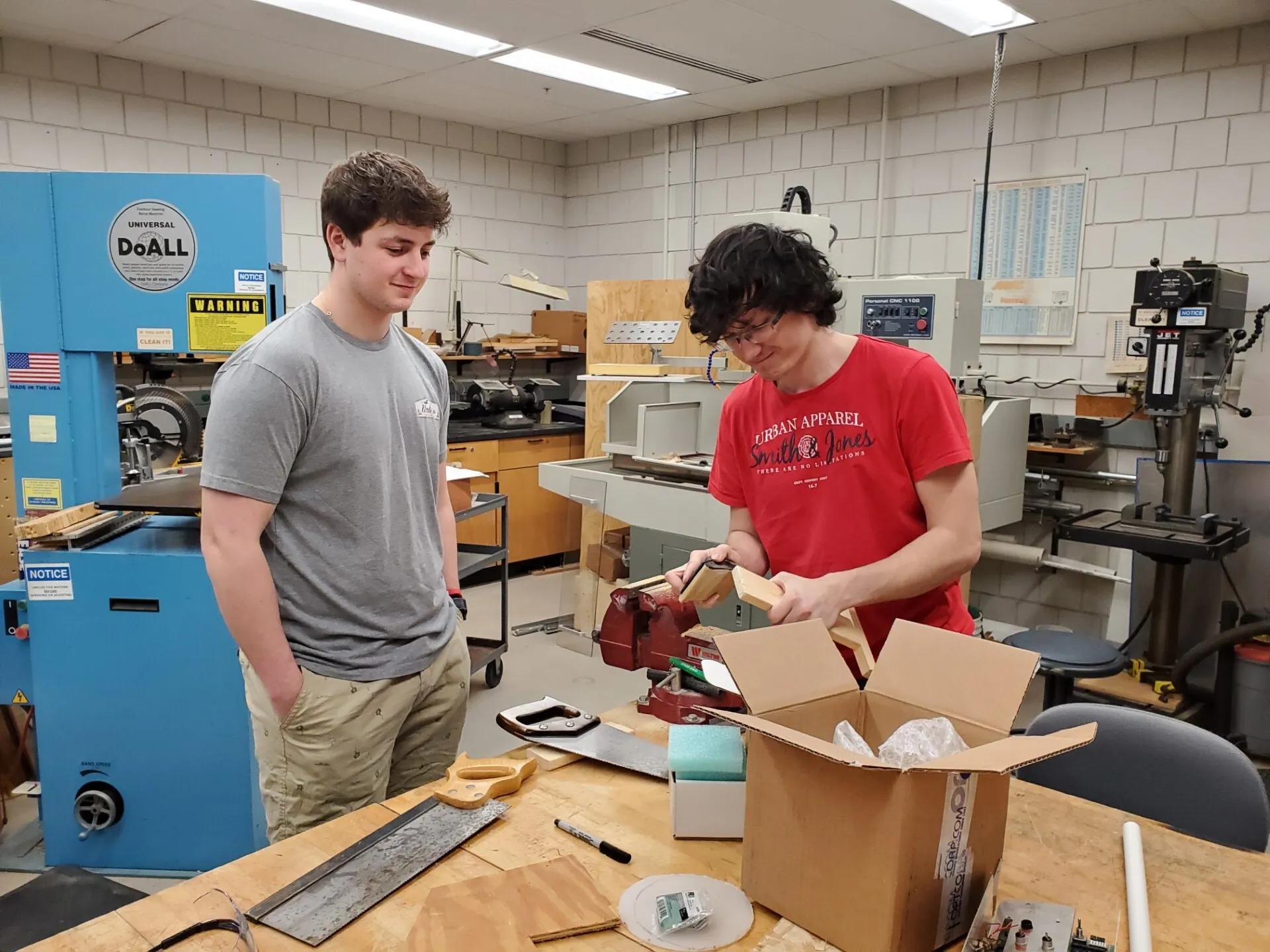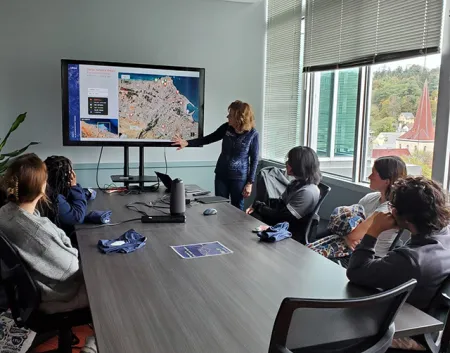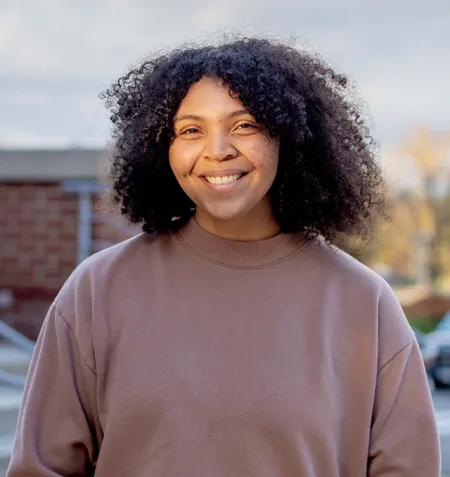As the rest of the Ithaca College campus prepares for temperatures to drop on South Hill, physics major Mikolaj Konieczny ’24 is thinking about Hawaii.
That’s where he’ll be travelling at the end of November, for the 6th Joint Meeting of the American Physical Society Division for Nuclear Physics and Japanese Physical Society. While a trip to a tropical island may be something many students dream about, for Konieczny, it’s a reality thanks to something set in motion before he even arrived on South Hill.
In 2019, the National Science Foundation awarded Ithaca College a five-year, $650,000 grant to recruit low-income, academically talented students in the fields of computer science, mathematics, physics, and astronomy. With the grant money, faculty members designed a program to provide two cohorts of students with real-world experiences via paid attendance at conferences in their disciplines, guaranteed research experience, one-on-one mentorship, and career-skills workshops and internships.


